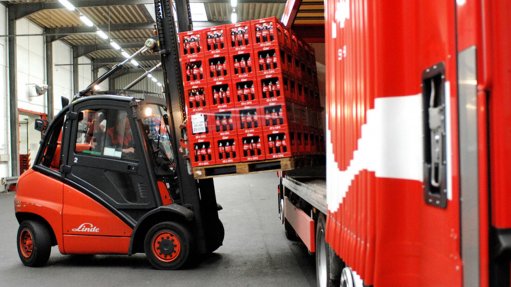Dunnottar train manufacturing complex project, South Africa
Name of the Project
Dunnottar train manufacturing complex project.
Location
Gauteng, South Africa.
Client
Gibela Rail Transport Consortium, comprising Alstom (61%), Ubumbano Rail (30%) and New Africa Rail (9%).
Project Description
The project involves the construction of a 60 000 m2 factory at the Dunnottar industrial complex to manufacture trains for South African State-owned Passenger Rail Agency of South Africa (PRASA). This forms part of a R51-billion contract to supply 600 state-of-the-art X’trapolis Mega commuter trains over ten years and provide technical support, as well as spare parts, over a 19-year period, for the rail agency.
The train manufacturing complex has a geographical footprint of 78 ha, comprising:
• the total built area of the factory of 51 ha, of which only 33 ha will be developed. The remaining land comprises an environmentally sensitive wetland, the preservation of which has necessitated the construction of a dam as part of the design and layout of the plant.
• 27 ha that have been reserved for the Ubumbano Rail Park, which will house suppliers of materials and components required for the new trains. The manufacturing contract has a minimum of 65% local-content stipulation.
The factory will produce 580 trains comprising 3 480 cars.
The plant will be equipped with several kilometres of rail network, including a 1.25 km dynamic test track for the testing of completed trains.
The first 20 trains were manufactured in Brazil, with the last of these arriving in South Africa in June 2017. The remaining 580 will be built at Dunnottar. At its peak, the manufacturing facility will produce 62 trains a year.
Potential Job Creation
About 1 500 workers have been employed during the facility’s construction, which started in January 2016.
The staff complement is 90% black and 49% female. At its peak, the facility will employ 1 200 workers.
To meet its local content commitment of at least 65% of contract value, Gibela has so far on-boarded 71 South African suppliers for materials, parts and services. More than 4 700 South African jobs are being supported by the company’s activities.
Value
R1-billion.
Duration
The project took 22 months to complete
Latest Developments
President Cyril Ramaphosa officially opened the Dunnottar train manufacturing facility on October 25.
Members of the Southern African Development Community Secretariat, Passenger Rail Agency of South Africa (PRASA) acting group CEO Sibusiso Sithole, PRASA chairperson Khanyisile Kweyama, Gibela chairperson Mpho Makwana, Gibela CEO Thierry Darthout, Alstom Middle East and Africa Senior VP Didier Pfleger, Alstom Southern Africa MD Xavier Boisgontier, and executives from Ubumbano Rail and New Africa Rail also attended the launch.
The Gibela consortium, which comprises Alstom, Ubumbano Rail and New Africa Rail, invested in the construction of the largest and “most advanced” train manufacturing facility in Africa, according to Gauteng Transport MEC Ismail Vadi, who spoke on behalf of Gauteng Premier David Makhura.
The facility is expected to deliver two new trains by December, and an additional nine trains by March.
The workshops are designed in a modular format to enable lean manufacturing processes which will, at peak production, produce 62 trains a year. This is important, Vadi has said, because the country has to provide regular and reliable transport for 2.3-million rail commuters – a number that is expected to double in the next 20 years.
The factory and the rolling stock it produces will aid in the transport department’s goal of improving the “ailing” Metrorail system, which conveys 900 000 people a day. It will also assist in alleviating road congestion through the development of safe, world-class coaches, which will assist in promoting a shift from private to public transport.
The launch forms part of PRASA's 20-year Rail Modernisation Programme, which is aimed at revitalising the rail industry through the local manufacture of parts, maintenance, training facilities, the creation of jobs and training and skills development for PRASA.
Further, he noted that the rolling stock renewal programme would result in over 8 000 direct jobs throughout the consortium's supply chain. The consortium already sources components and input products from 71 local suppliers. The development of a supplier park, adjacent to the factory, is also being considered.
He lauded Gibela and its shareholders for their involvement in and focus on community development, which includes the awarding of bursaries and mathematics and science tutoring.
"The training facility aims to train over 6 700 artisans, 2 000 engineering technicians and 600 professional engineers.”
Key Contracts and Suppliers
Aecom (engineering, procurement and construction management contractor); Trencon Construction (site clearance, bulk earthworks and civil infrastructure) and Trencon Construction and Black Jills Engineering (main site buildings, including the training centre) and Saflog Consulting Services (rail infrastructure).
On Budget and on Time?
Initial timelines have been negatively impacted on by various factors, including land and other permitting delays, which had a budgetary knock-on effect. Ameliorating the effect of these forms part of the ongoing project execution.
Contact Details for Project Information
Gibela communications director Pamella Radebe, email pamella.radebe@gibela-rail.com
Comments
Press Office
Announcements
What's On
Subscribe to improve your user experience...
Option 1 (equivalent of R125 a month):
Receive a weekly copy of Creamer Media's Engineering News & Mining Weekly magazine
(print copy for those in South Africa and e-magazine for those outside of South Africa)
Receive daily email newsletters
Access to full search results
Access archive of magazine back copies
Access to Projects in Progress
Access to ONE Research Report of your choice in PDF format
Option 2 (equivalent of R375 a month):
All benefits from Option 1
PLUS
Access to Creamer Media's Research Channel Africa for ALL Research Reports, in PDF format, on various industrial and mining sectors
including Electricity; Water; Energy Transition; Hydrogen; Roads, Rail and Ports; Coal; Gold; Platinum; Battery Metals; etc.
Already a subscriber?
Forgotten your password?
Receive weekly copy of Creamer Media's Engineering News & Mining Weekly magazine (print copy for those in South Africa and e-magazine for those outside of South Africa)
➕
Recieve daily email newsletters
➕
Access to full search results
➕
Access archive of magazine back copies
➕
Access to Projects in Progress
➕
Access to ONE Research Report of your choice in PDF format
RESEARCH CHANNEL AFRICA
R4500 (equivalent of R375 a month)
SUBSCRIBEAll benefits from Option 1
➕
Access to Creamer Media's Research Channel Africa for ALL Research Reports on various industrial and mining sectors, in PDF format, including on:
Electricity
➕
Water
➕
Energy Transition
➕
Hydrogen
➕
Roads, Rail and Ports
➕
Coal
➕
Gold
➕
Platinum
➕
Battery Metals
➕
etc.
Receive all benefits from Option 1 or Option 2 delivered to numerous people at your company
➕
Multiple User names and Passwords for simultaneous log-ins
➕
Intranet integration access to all in your organisation





















